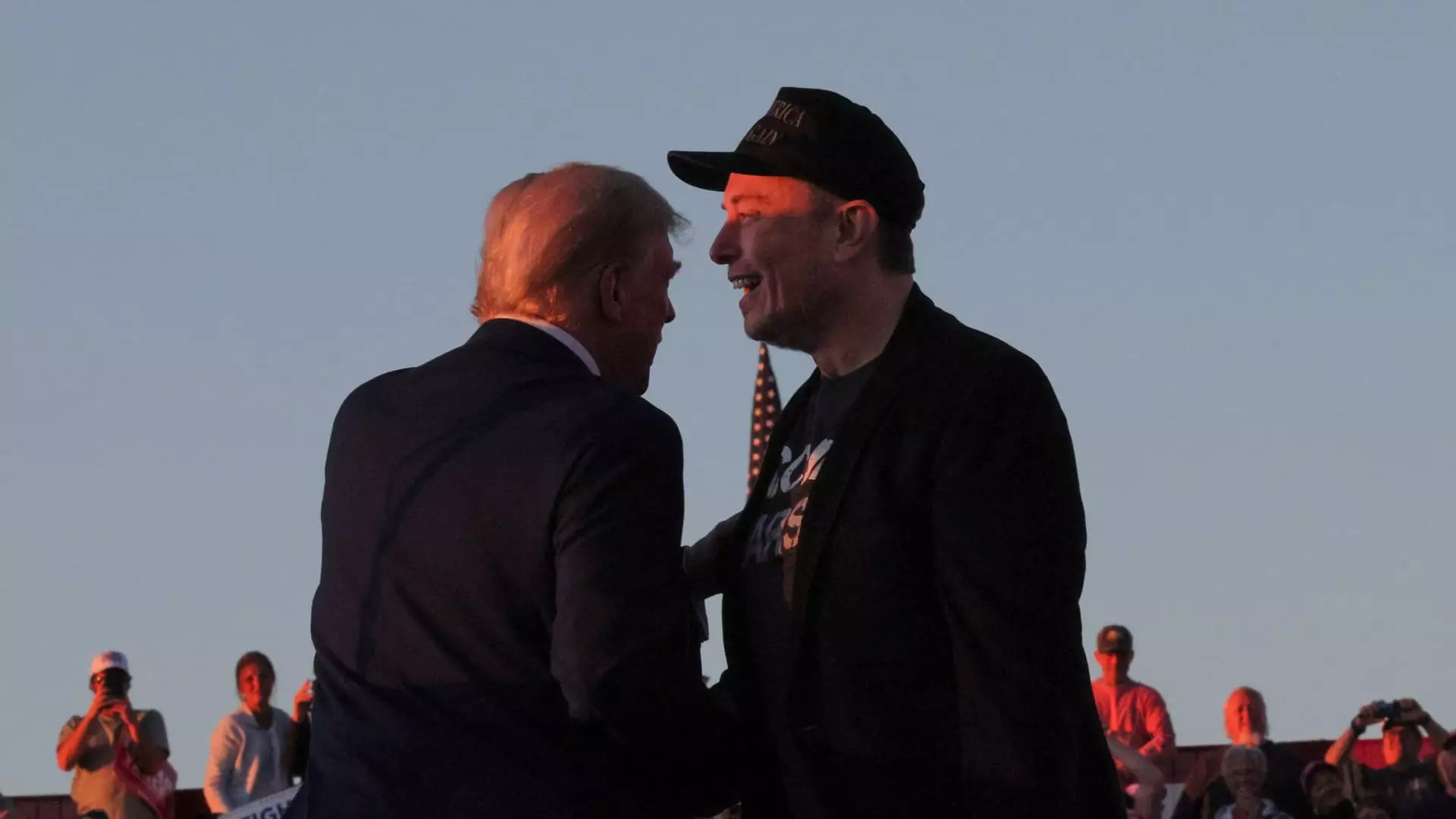Elon Musk’s influence over Tesla extends far beyond the confines of technological innovation and electric vehicles. As the company gears up to release its quarterly results, a significant undercurrent of concern has surfaced among investors regarding Musk’s intertwined political engagements and the potential ramifications for Tesla’s reputation and market performance. This article delves into the complexities of this situation and how Musk’s political stance might be impacting shareholder perceptions and company performance.
As the fervor surrounding the upcoming earnings report builds, many retail investors have taken to online forums to express their unease with Musk’s political involvement, particularly regarding his advocacy for Donald Trump. One frequently voiced concern is whether Musk’s public political activism distracts from his primary obligations as Tesla’s CEO—specifically, safeguarding shareholder value.
One investor articulated a critical query: does Tesla have measures in place to mitigate any negative impacts arising from Musk’s political engagements? Such inquiries underscore a notable shift in the conversation among shareholders; rather than merely focusing on car deliveries and revenue forecasts, they are now evaluating how Musk’s controversial comments and affiliations could affect the company’s reputation and overall market dynamics.
As reflected in the forum feedback with significant upvotes, this is not an isolated concern—the sentiment resonates widely among Tesla stakeholders. Investors are increasingly worried that Musk’s personal beliefs may cloud operational decisions and ultimately lead to a decline in Tesla’s market position.
Elon Musk operates a menagerie of companies, from Tesla to SpaceX, xAI, Neuralink, and The Boring Co. This multifaceted role places him in a unique position where his various enterprises might suffer from conflicting interests. Critics argue that holding multiple influential positions, while dabbling in political discourse, could inevitably lead to a dilution of focus, hampering strategic decision-making and impacting performance metrics across the board.
While Musk’s political aspirations extend to encouraging voter registration in battleground states and endorsing Trump for a second term, questions arise about how these pursuits could deter potential buyers who favor a more neutral or progressive corporate image. Touting political engagement—as seen with Musk urging Trump to establish a “government efficiency commission”—may alienate portions of Tesla’s customer base, thereby affecting sales figures, particularly during this pivotal time in the automotive industry’s shift toward electrification.
The quantification of Musk’s political rhetoric and its direct effects on Tesla’s performance remains nebulous. However, some analysts, such as Gene Munster from Deepwater Asset Management, have dared to measure this impact. Munster articulates concerns that Musk’s heightened political activity might have caused Tesla’s U.S. deliveries to drop by 5,000 to 10,000 units in a single quarter. This position brings forth a broader question: how much weight do political affiliations carry in the modern enterprise landscape?
With Tesla’s shares down approximately 14% this year, it’s evident that investors are vigilant about the interplay between Musk’s public persona and corporate health. As the company’s brand value reportedly fell by 9%, assessments from brand consultancy Interbrand suggest that current market dynamics are producing “confusion” surrounding Tesla’s strategic direction. Amidst competing firms like Toyota and Mercedes Benz, who have rapidly adapted in the arena of electric vehicles, Musk’s Donald Trump-related endeavors could further complicate brand perception as Tesla strives to carve out its niche.
Moving forward, Tesla faces a considerable balancing act—reconciling Musk’s political persona with the expectations of its shareholders and customers. Should Tesla’s board step in to ensure that Musk’s political aspirations do not overshadow the core mission of the company, which is to innovate within the electric vehicle sector? There are inklings of a potential schism; as various factions within the shareholder community call for a reassessment of priorities.
The nexus of politics and business in Elon Musk’s universe could have far-reaching implications for Tesla. As shareholders increasingly express concern about how Musk’s political maneuvers align with their investment interests, it becomes crucial for the company’s leadership to navigate these complex waters. Ignoring the influential role of public perception may lead to unforeseen consequences in a fast-evolving marketplace, leaving Tesla to ponder whether it can safeguard its core values while engaging in a politically charged environment.

